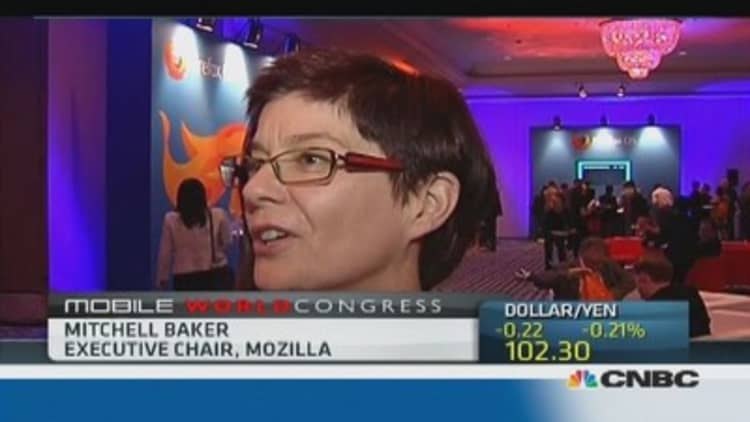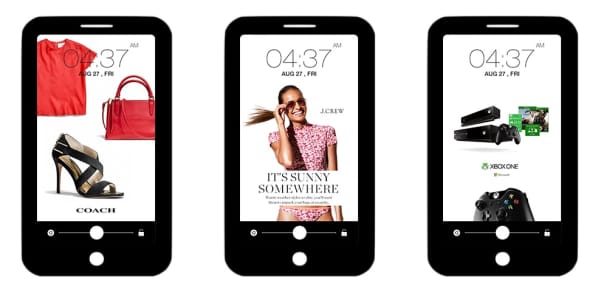
The chairperson of the Mozilla Foundation - best known for the Firefox web browser - has said that more needs to be done to protect citizens across the world from mass surveillance, singling out the U.S. for its lack of resolve.
Speaking at the Mobile World Congress in Barcelona, Mitchell Baker told CNBC she would like to see more done to stop the mass collection of data and said the U.S. was not doing enough to protect all citizens - rather than just their own.
"In the United States they might in the future protect U.S. citizens from mass surveillance by our government, maybe, but at the same time we've been explicit that this would only apply to U.S. citizens," Baker said.
(Read more: OMG! Is this the end for texting?)"So if you're a European citizen or an Asian citizen or an Indonesian citizen, you have no protections from the United States... it's clear that the European customers of American companies are deeply unhappy."
It is not the first time Mozilla has spoken out about the U.S. government's collection of data following leaks from National Security Agency (NSA) whistleblower Edward Snowden, with Brendan Eich, chief technology officer of the Mozilla Foundation, writing a blogpost in January outlining concerns with government snooping.
Baker said that many Mozilla customers were Europeans who had experienced mass surveillance as a norm during the 20th century, and a return to something similar was worrying for customers who wanted to see a balance between security and convenience.
"That's an immense balance between two values we all hold: I want to be safe but I want my life to be convenient," Baker said.
(Read more: Wearable tech: a victim of its own hype?)
"We (Mozilla) have a high interest in customized content for people without tracking, but how can we move forward so that there is data about us, we each have individualized experiences but we feel safe because we are in control."
Also at the Mobile World Congress, Mozilla unveiled a $25 smartphone to help it crack the growing mobile market in the developing world.
The organization hopes to tap into the Asian and African markets with its new low-end smartphone, appealing to people who cannot afford more expensive models by companies like Apple and Samsung.
Firefox has teamed up with Spreadtrum Communications to offer $25 Firefox OS smartphones in markets like India and Indonesia.
According to the International Telecommunication Union (ITU), there are just over 6.8 billion mobile subscribers globally, with 5.2 billion of those based in the developing world.
While Baker said that parts of the world where people were buying their first smartphones were important for Mozilla - in that they want these individuals the feel the "full power" of the network - it did not mean the company would only focus on the low-end sector.
(Read more: Cash or charity? Mobile networks fight it out)
"We also view this affordable market as a proving ground for the power of the system so that we can offer flexibility and innovation and choice and opportunity for business across all price points" she said. "So we're starting at the affordable market but the goal is to offer these things to all of us."
As Mozilla looks to the future of the mobile market, it will be interesting to see how its revenues fare. Over 80 percent of the company's revenue comes from Google, which pays Mozilla to ensure that its search engine remains Mozilla Firefox's default search tool.
But Baker insisted she was not concerned that it relied too heavily on Google revenue.
"Firefox is a significant portion of web and search traffic and so the idea that Google is going to look up and say we're not interested in that 20 percent market share...we're going to roll the dice and see if Chrome can pick it all up seems unlikely," Baker told CNBC.
"We compete, fiercely, but I'd be surprised if you found they were out to kill us."





